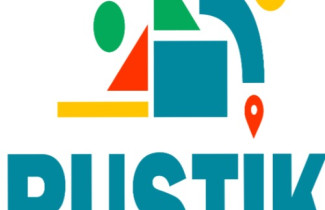RUSTIK (Rural Sustainability Transitions through Integration of Knowledge for improved policy processes) is a four-year transdisciplinary research project. The project aims to enable rural communities’ actors and policymakers to design better strategies, initiatives and policies fostering sustainability transitions of rural areas.
“The vision of North Karelia’s regional strategic programme sees North Karelia as a sustainably growing and smartly adapting region, and it also identifies the challenges we are facing in regional development. The RUSTIK project provides us with comparative data from other similar areas in Europe. As an outcome of the project, we expect to gain new models and new insight into the development of our region, and how to make it increasingly vibrant,” says Regional Development Director Eira Varis of the Regional Council of North Karelia.
RUSTIK starts from the idea of rural areas being more than just passive adapters to various external changes, be they economic or political.
“Rural areas in Europe are becoming increasingly diverse, which translates not only into challenges, but also into new opportunities. In order to make better use of the EU’s regional and rural policy, understanding the process of specialisation, and making it visible, plays a key role here,” says Research Director Petri Kahila of the University of Eastern Finland.
The project, funded by the Horizon Europe programme, envisages an analysis of current adaption requirements and the support of effective rural policy-making processes for a better understanding of the different rural functionalities and characteristics as well as the potentials and challenges of rural areas. Environment, climate-energy, socio-economic and digital will be the key transition pathways studied in the project.
Living Labs in 14 European Pilot Regions in 10 European countries will be the central element to generate new insights into rural diversity and societal transformations. RUSTIK’s Living Labs will work on the identification of new data, methods of data collection, combined with current data sources to set up relevant indicators. The project will also focus on data integration and dissemination, to make information and analysis accessible and valuable for actors and policymakers; and to improve rural impact assessment. The final goal is to enhance policy strategies and governance structures. To do so, three sequential phases, i.e., situational review, data experimentation, and policy learning, are envisaged.
A multidisciplinary consortium
The consortium involves 30 partner organisations. Eight universities and four research institutes are providing scientific expertise within the fields of rural development, spatial planning and reporting, policy process, climate change and sustainability; two knowledge-based SMEs contribute to this with ready-to-apply technologies and approaches; and two NGOs act as intermediaries between university resp. SMEs. At the University of Eastern Finland, the project is run by the Karelian Institute.
In RUSTIK, the Pilot Region of North Karelia is represented by the Regional Council of North Karelia. The Regional Council of North Karelia plays a key role in generating new knowledge on regional adaptation and renewal, and in disseminating it to regional stakeholders.
Local and regional embedded partners ensure a practice-oriented implementation of the project. This comprises partners from five local or regional public administration, two local action groups (LAGs), three business associations and three regional development agencies.
Two European umbrella organisations representing rural mountainous stakeholders and regions, Euromontana, and the European LEADER association for rural development, ELARD, are key multipliers towards other European regions and particularly support the dissemination towards the European Union.
The consortium’s efforts will contribute to enhancing existing European policy tools and approaches, most of all to support the European Green Deal, the European Digital Strategy, the European Pillar of Social Rights and the EU Long-Term Vision for Rural Areas of the European Union, the EU Cohesion policy, the common agricultural policy, and, in particular, the European agricultural guarantee fund (EAGF).
For further information, please contact:
Research Director Petri Kahila, tel. +358 50 411 8445, petri.kahila(at)uef.fi
Postdoctoral Researcher Juha Halme, tel. +358 50 570 3754, juha.halme(at)uef.fi
RUSTIK in social media
https://www.linkedin.com/company/rustikheu/


